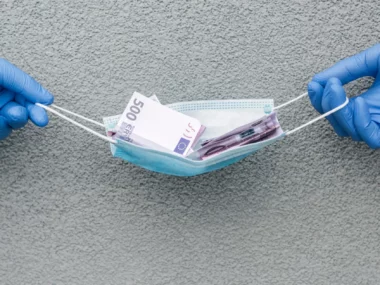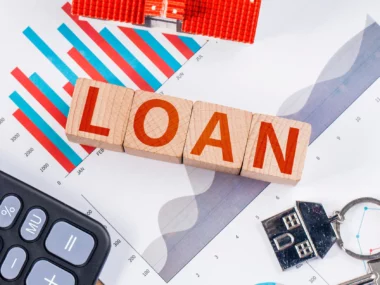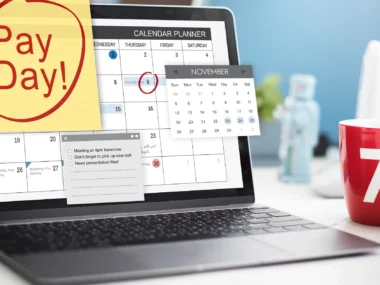Table of Contents
How a broken lease can affect your credit score becomes very significant knowing fully well that when you sign a lease with a property owner, you are legally obligated to abide by the contract until the end of the lease term.
However, there are certain situations that would warrant you to get out of the lease earlier than the termination date.
If you find yourself in this position, you need to be careful so you don’t fall victim of some of the consequences that accompany a lease breakage. A lease is a legal contract which you must abide by come rain, come shine.
One of the consequences of breaking your lease is that it can harm your credit in a way that might not be reparable.
Therefore, if you are thinking about breaking your lease, there are smart ways to go about it so you don’t end up ruining your credit.
Let’s take a look at what a lease entails, the types of leases, and how you can break your lease without harming your credit score.
What Is A Lease?
This is a legal, binding contract which states the conditions under which a party agrees to rent out an asset to be used by another party. The lease protects both the lessor (landlord/owner) and the lessee (renter/tenant). It assures the lessee the use of the property while simultaneously assuring the lessor regular payments in exchange for the use of the property for a particular period of time. Failure to abide by the terms of the lease by either of the parties will result in certain consequences.
Read this article to be well grounded about credit scores.
Details Of A Lease
- The address of the property.
- The amount charged as rent.
- Policies regarding pets.
- The lifetime of the lease.
- The amount requested as a security deposit.
- The responsibilities of the lessor and the lessee.
- Consequences of violating the contract.
Types Of Lease
1. Single-Net Lease: This is a type of commercial real estate lease where the tenant is responsible for paying property taxes in addition to rent.
2. Double-Net Lease: This is a type of lease where the tenant is responsible for paying property taxes and insurance in addition to rent. Any maintenance cost is paid by the landlord.
3. Triple-Net Leases: This is a type of lease where the tenant is responsible for paying property taxes, insurance, and maintenance costs.
4. Gross Leases: This is a type of lease where the tenant only pays rent while the landlord is responsible for other costs such as property taxes and maintenance costs.
5. Capital lease: This is a contract that allows a lessee the temporary use of an asset.
6. Ground lease: With this type of lease, lessee is allowed to develop a piece of property during the time that he has rented it. At the end of the lease term, the property and all improvements are handed over to the owner of the property.
7. Finance lease: This is a type of lease where a finance company rents out its asset to a lessee for an agreed-upon period of time.
What Is a Lease Option?
This is an agreement that provides a renter with the option of buying the property which they have rented. This could either be done while the rent is still active or after it has ended. A lease option forbids the owner of the property from selling the property or even offering it for sale to anyone else until the renter opts out.
What Is a Lease Extension?
This is a legal agreement that prolongs the term of an existing rental agreement.
What Is a Lease Rate?
This is the amount of money that a lessee pays to rent a property for a particular period of time.
What Does It Mean To Break A Lease?
Breaking a lease simply means ending a lease before the termination date that was agreed upon by both the lessor and the lessee. If a tenant or property owner for some reason decides to end a fixed term agreement before the end date that they both initially agreed to, they are breaking the lease.
Consequences of Breaking A Lease
Before you decide to break your lease, be absolutely sure that it is a move that you really have to make. This is because there are certain consequences that come with it and any of them can apply to you.
1. Legal action: If you break your lease, legal action might be taken against you by your landlord. If your lease agreement doesn’t make provisions for early termination and how to handle it, your landlord might decide to take you to small claims court. The outcome of the case will become a part of your record which future lenders will have access to and this might impact their decision to rent to you.
2. It could impact your credit score: Your credit score remains a way for creditors to determine how you handle bills and debts, therefore it is important that it remains in a healthy condition. If your landlord sues you for breaking the lease and refusing to pay associated fines, it will have an adverse effect on your credit score.
3. You might have to pay some huge fees: Breaking a lease often comes with a fine which could be equal to two or three months’ rent. You might also have to pay the rent for the rest of your lease term, irrespective of whether you’re occupying the apartment or not.
4. Loss of security deposit: When renting a property, you will be charged a particular amount as a security deposit which you will get back once the lease has ended, provided you leave the property in the same condition that you met it. However, when you decide to break your lease, you can rest assured that your security deposit is gone.
5. It might be hard to secure a new place: Some landlords might view your record of breaking your previous lease as a problem. Even if the issue of lease breakage didn’t make it to court or it didn’t impact your credit score, the property owner might decide to contact your previous landlords to know what kind of tenant you were and if they find out that you broke your lease in the past, they might not want to rent to you.
Legal Reasons To Break A Lease
While it is not advisable to break one’s lease due to some consequences that might follow, there are situations where you are allowed to do so and there would be no repercussions. You can break your lease if:
- The property or apartment is inhabitable or unusable.
- Your landlord has violated the terms of the rental contract.
- You are an active military member who is being transferred to another area.
- You have been a victim of domestic violence within the past three to six months.
- The lease is illegal.
- You have a medical condition that makes living in the apartment untenable.
How To Break A Lease In An Amicable Manner
After you’ve weighed all your options and breaking your lease seems to be the only logical option, there are some steps that you can take to make the process go smoothly.
1. Talk to your landlord: To make the process easy, try to have a conversation with your landlord regarding your decision to break your lease. Explain your situation to them and see if you can both come to an agreement that will favour both parties. There is a chance that doing this might protect you from any of the consequences that accompany a lease breakage.
2. Peruse your lease: Before you start packing your things, ensure to take a thorough look at your lease to see if there is a termination clause and what it says you are expected to do. Some landlords will let you break your lease as long as you are willing to pay a termination fee and forget your security deposit.
3. Get someone to replace you: To increase your chances of breaking your lease amicably, you can find someone to take over your rent and replace you as a tenant.
How A Broken Lease Can Affect Your Credit Score
When you rent an apartment, you sign a lease and agree to pay for and occupy the space for a particular period of time. However, life is unpredictable and there are situations where you would need to break your lease and move out of the apartment.
When you find yourself in a situation like this, you need to be careful how you handle it so you don’t end up facing some serious consequences that accompany a lease breakage.
One of the consequences of breaking your lease is the negative impact that it can have on your credit. When you decide to break your lease, it doesn’t necessarily harm your credit unless you refuse to pay some fees requested by your landlord and they decide to sue you or send your debt to a collection agency.
Therefore, before moving out, it is advisable that you take a thorough look at your lease agreement and also have a chat with your landlord to ensure that you’ve settled all your debts. Doing this will protect your credit.
How Do I Break My Lease Without Harming My Credit?
If you decide to break your lease, there are certain steps that you can take to protect your credit.
1. Discuss your situation with your landlord and see if you can come to an agreement that benefits both parties. This might placate and dissuade them from taking any negative action that might harm their credit.
2. Pay your debts: If you have any outstanding debts, ensure to settle them before moving out. This doesn’t just apply to termination fees but also to rent and utilities.
3. Although it is not your duty, finding a new tenant to move into the soon-to-be vacated apartment will help to take the responsibility off of you, thereby freeing your credit from any potential harm.
4. Ensure to put any agreement that you have with your landlord in writing and also keep records of all your payments. By doing this, you will be able to defend against any issue that might come back to harm your credit in the future.
To Sum Up:
While there are some reasonable and acceptable reasons for breaking your lease and move out of your apartment, if you don’t go about it the right way, you may end up ruining your credit score.
Now that you are familiar with how a broken lease can affect your credit score, thread carefully when trying to take such step.






